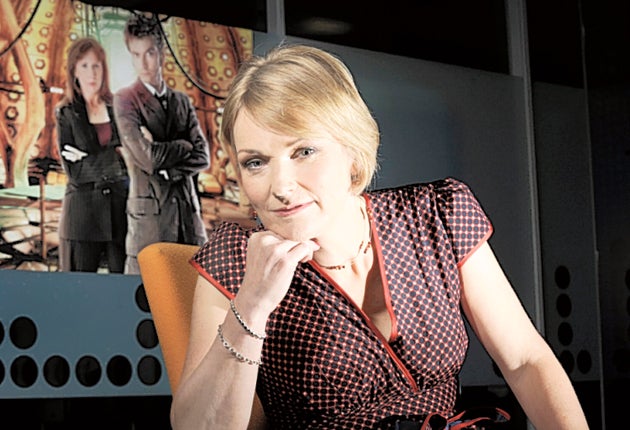BBC1 chief declares truce in Saturday night ratings war

Your support helps us to tell the story
From reproductive rights to climate change to Big Tech, The Independent is on the ground when the story is developing. Whether it's investigating the financials of Elon Musk's pro-Trump PAC or producing our latest documentary, 'The A Word', which shines a light on the American women fighting for reproductive rights, we know how important it is to parse out the facts from the messaging.
At such a critical moment in US history, we need reporters on the ground. Your donation allows us to keep sending journalists to speak to both sides of the story.
The Independent is trusted by Americans across the entire political spectrum. And unlike many other quality news outlets, we choose not to lock Americans out of our reporting and analysis with paywalls. We believe quality journalism should be available to everyone, paid for by those who can afford it.
Your support makes all the difference.The BBC and ITV's Saturday night ratings war is at an end, the controller of BBC1, Jay Hunt, has signalled, saying she would no longer be alarmed if her network ceased to be Britain's most popular channel.
Ms Hunt said she would not be concerned if Strictly Come Dancing, the BBC's most popular show, attracted smaller audiences than ITV's The X Factor. A fierce scheduling war between the two angered viewers last year. "I don't think it would matter in a pure sense, I don't regard it as a competition between us and ITV," she said, adding that it was still important that BBC1 programmes commanded large audiences. "I don't think it matters, frankly, where we are relative to ITV."
Ms Hunt, who refused to comment on intense speculation that she will be applying to become chief creative officer at Channel 4, was speaking at the Edinburgh International Television Festival after the BBC's director-general, Mark Thompson, made a key speech attacking the dominance of the British media by BSkyB and Rupert Murdoch's News Corporation (which is the satellite broadcaster's largest shareholder).
The BBC1 controller's comments were a further suggestion that the BBC no longer sees itself in competition with its traditional rival ITV – which Mr Thompson said had never been as powerful a competitor as BSkyB is now.
Warned by the radio presenter Simon Mayo, who was interviewing her, that she would be criticised for poor ratings, she said: "[Ratings] matter, but they don't matter hugely." She cited recent BBC1 programmes on the arts, including one about Picasso, saying they were not designed to attract vast audiences. "Not everything we do is about being hugely competitive."
She said "I don't think it matters particularly" if Strictly Come Dancing was beaten in the ratings by The X Factor. Mayo reminded her of the previous rivalries. "Yes, it did last year and it did the year before and everybody got terribly excited by that, but at the end of the day the final was watched by more than 11 million people," she said.
"It's still our highest rating entertainment show by a very long stretch. I'm sort of agnostic about [ratings], I don't think it matters. What is exciting is in this day and age having both BBC and ITV on a Saturday night both delivering audiences north of 10 million." This year, for the first time, Strictly Come Dancing viewers will get to see the "magical moment" at the start of the competition when the celebrities meet their dancing partners.
Mayo, a BBC colleague, questioned Ms Hunt over "speculation" that she would leave the Corporation for Channel 4 and asked her about her relationship with the other BBC channel controllers. "I'm not speculating on what I may or may not do at some future date," said Ms Hunt, who denied that she had unduly poached successful programmes from her BBC colleagues, saying that only Masterchef and QI from BBC2 and Gavin & Stacey from BBC3 had made the transition.
She also denied an accusation by the television executive Andy Harries that BBC1 had suffered a "talent exodus" on her watch, a reference to the departures of Jonathan Ross, Adrian Chiles and Christine Bleakley. Ms Hunt admitted that the loss of Chiles had been "hard" but said The One Show, which he had presented, had not suffered from his absence.
"The bottom line is that I'm sitting here now, two weeks into the new-look One Show, with brand new presenters who are completely unknown to a BBC1 audience and it has performed more robustly than it has ever performed before."
Those comments echoed remarks made by Mr Thompson on Friday when he said that the BBC, which has been facing criticism over its spending levels, might have to allow some of its top stars to leave.
Ms Hunt said the BBC would have to learn to be "more pragmatic" in negotiating with talent, though she said Chiles had been "given the offer of work that a lot of presenters would give their back teeth for" as the BBC tried to persuade him to stay.
Join our commenting forum
Join thought-provoking conversations, follow other Independent readers and see their replies
Comments